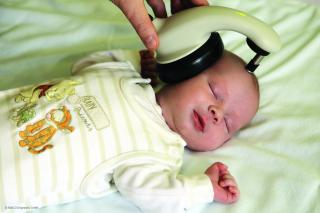- Home
- News
- Screening Matters, Issue 54, November 2015
- Key changes to the newborn hearing screening programme
News
- Screening Matters Newsletter
- April 2019
- April 2018
- December 2017
- August 2017
- April 2017
- December 2016
- October 2016
- March 2016
- November 2015
- August 2015
- June 2015
- April 2015
- February 2015
- December 2014
- October 2014
- August 2014
- June 2014
- April 2014
- February 2014
- December 2013
- October 2013
- August 2013
- June 2013
- April 2013
- February 2013
Screening Matters
The National Screening Unit newsletter
In this issue:
- Key changes to the newborn hearing screening programme
- Update on transition to HPV screening consultation
- Death of renowned Māori community health pioneer
- Spotlight on rare genetic metabolic disorder, galactosaemia
- National Screening Advisory Committee has vital role
- Revitalising HPV immunisation will deliver long-term benefits for women
- Redesign of breast and cervical cancer screening support services
- Screening questions, new ideas and ethics to be explored at workshop
Key changes to the newborn hearing screening programme

The changes enable the implementation of quality improvements recommended for the UNHSEIP through review reports in 2013 and 2014.
One of the major changes is the introduction of a single type of equipment for all newborn hearing screening nationally. All screening is now performed using the Beraphone MB11 screening device.
The type of screening and number of steps has also changed. All DHBs have moved to automated auditory brainstem response (aABR) testing only, as is used in many overseas programmes.
There has also been a change in the policy for babies with risk factors for later onset or progressive hearing loss. The NSU, together with a panel of experts including audiologists, paediatricians and ear, nose and throat specialists, reviewed the list of risk factors for later onset or progressive hearing loss.
Based on evidence from a number of programmes, the risk factors requiring referral to audiology for additional hearing surveillance have been more tightly defined and require clinical confirmation. As a stand-alone risk factor, a family history of hearing loss will no longer trigger an automatic audiology follow-up appointment.
The changes have been communicated to paediatricians, midwives and neonatal intensive care unit staff. Families who have already been referred under the discontinued risk factors will be given the option of keeping appointments. Audiologists now have more specific guidance on the expected timing and testing for different conditions (including babies with cleft palate and Down syndrome).
All parents are provided with a hearing checklist for babies that can assist with early identification of any delays in speech and language development. Each Well Child Tamariki Ora visit also includes questions about baby’s hearing. Parents are advised to talk to their doctor or Well Child provider if they have any concerns about their baby’s hearing.
To receive the Screening Matters newsletter by email, fill out our sign-up form.

